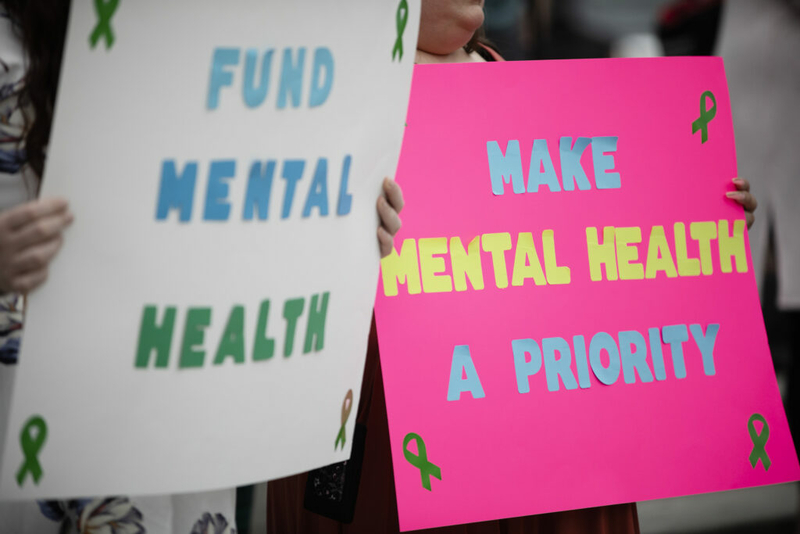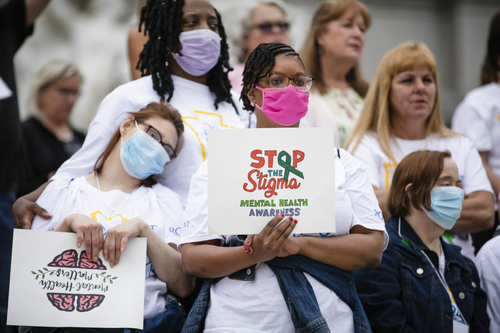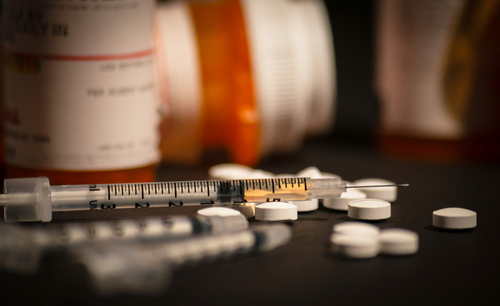Pa.’s Wild, Fitzpatrick press for full funding for mental health services | Tuesday Morning Coffee

A bipartisan group of Capitol Hill lawmakers — including three from Pennsylvania — are calling on congressional budget-writers to prioritize funding for mental health resources in the 2024 federal budget.
U.S. Reps. Susan Wild, D-7th District, and Brian Fitzpatrick, R-1st District, joined by U.S. Rep. Marilyn Strickland, D-Wash., wrote to House appropriators last week to ask for the “highest possible funding” for the U.S. Substance Abuse and Mental Health Services Administration.
The request comes “in recognition of the mental health and substance abuse crisis affecting our nation from coast to coast,” the lawmakers said in a statement.
President Joe Biden’s 2024 budget request, unveiled earlier this month in Philadelphia, asks for $10.8 billion for the agency, which is part of the U.S. Department of Health and Human Services.
SAMHSA, as it’s known in federal shorthand, is the primary federal agency for “leading public health and service delivery efforts that promote mental health, [and] prevent substance misuse,” the agency said in budget documents. It received $10.7 billion in funding in the fiscal 2023 budget.
In all, 13 congressional lawmakers, including U.S. Rep. Madeleine, Dean, D-4th District, signed the letter sent to U.S. Reps. Robert Aderholt, R-Alabama, and Rosa, DeLauro, D-Conn, who are, respectively, the chairperson and ranking Democrat on the House Appropriation Committee’s Subcommittee on Labor, Health and Human Services, Education, and Related Agencies.

“Across the communities I represent, one of the issues most frequently raised to me is the need to address mental health—from children to seniors, everyone is affected by this crisis,” Wild said in a statement.
Carbon County, in Wild’s district “experiences the highest rate of veteran suicides in the Commonwealth of Pennsylvania,” the Allentown Democrat said, adding that she’s “grateful to my colleagues for joining me in urging the highest possible funding for SAMHSA, so that every American can receive the mental health care they deserve, because when one of us is stronger, we are all stronger.”
In that joint statement, Fitzpatrick observed that “substance use disorder is plaguing our communities, and Congress must do everything in our power to invest in awareness, prevention, and treatment.
“Prevention is the number-one way to combat this issue, and SAMHSA’s Center for Substance Abuse Prevention (CSAP) is committed to these efforts,” he continued “This grant will ensure that those battling substance use challenges are able to access the resources they need.”

Earlier this month, Dean and U.S. Sen. Bob Casey, D-Pa., touted companion House and Senate bills that would effectively eliminate the cost of opioid treatment and recovery support services for people with private insurance plans and for people enrolled under a new Medicare pilot program.
In Pennsylvania, 5,168 state residents died from overdoses in 2021, according to the state Attorney General’s Office.
In their letter to Aderholt and DeLauro, the bipartisan band of lawmakers added some national context, citing federal data showing 61.2 million Americans aged 12 years old and older used illicit drugs in 2021.
There were 101,751 drug overdose deaths reported nationwide in the 12-month period ending in October 2022, federal data showed. Opioid overdoses accounted for the overwhelming majority of those deaths at “nearly 76,924” fatalities, the lawmakers wrote.
“We sincerely appreciate efforts to ensure SAMHSA is fully funded in order to expand access to prevention, treatment, recovery services,” Robert Morrison, of the National Association of State Alcohol and Drug Abuse Directors, said in that joint statement.








